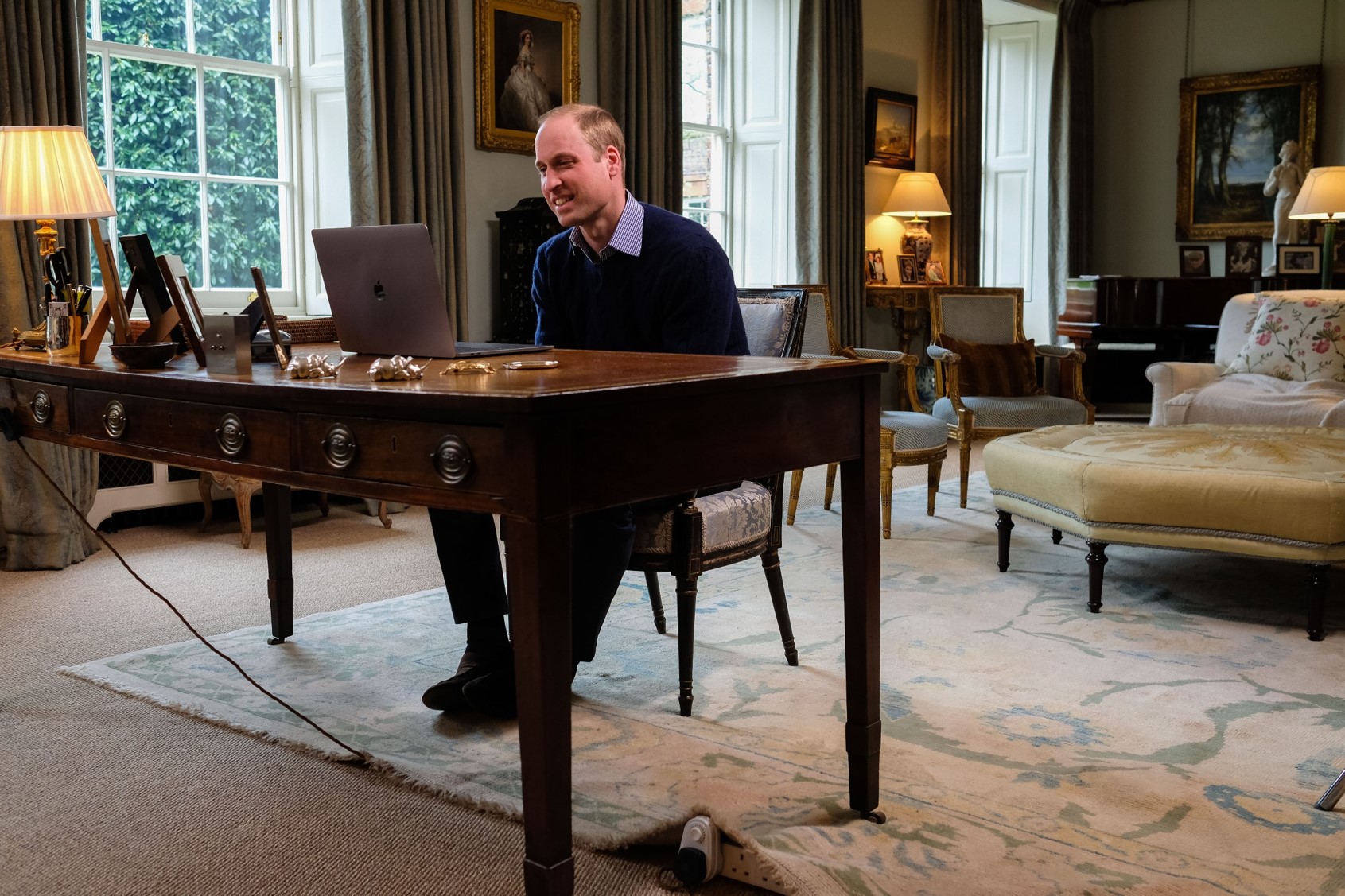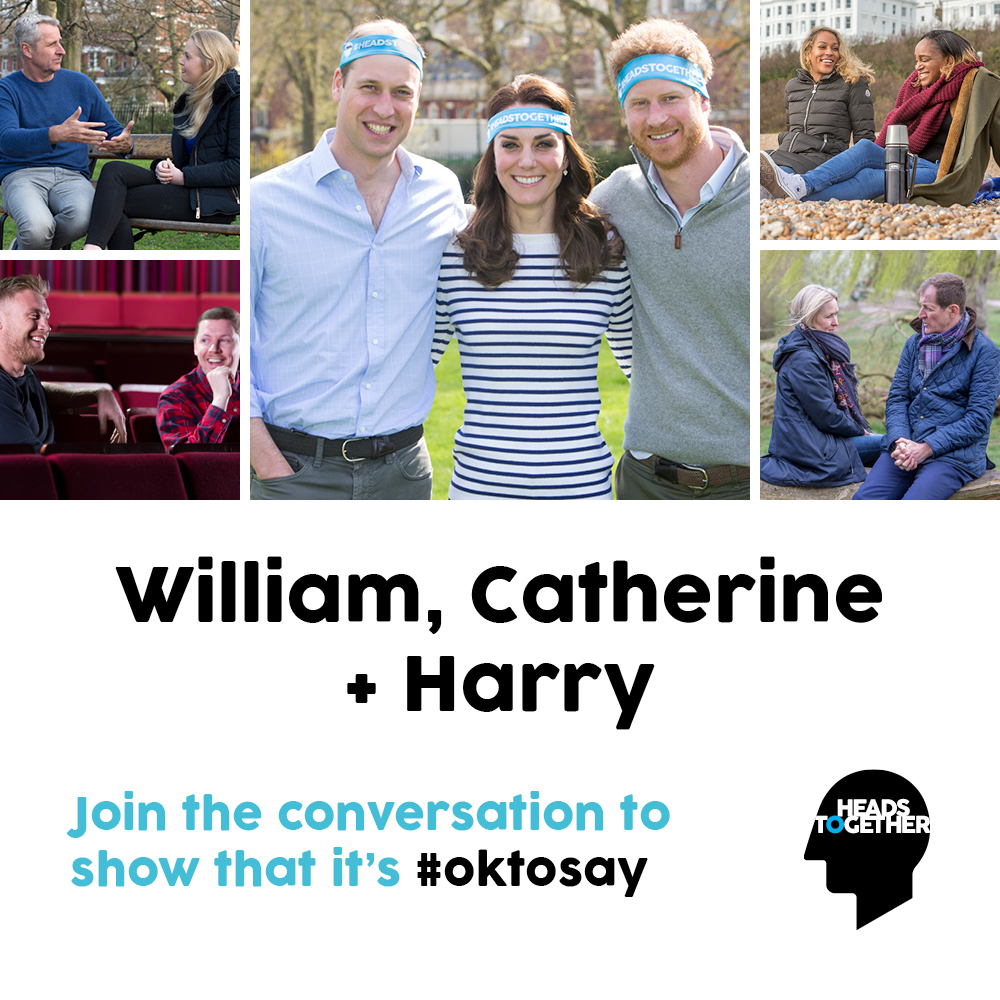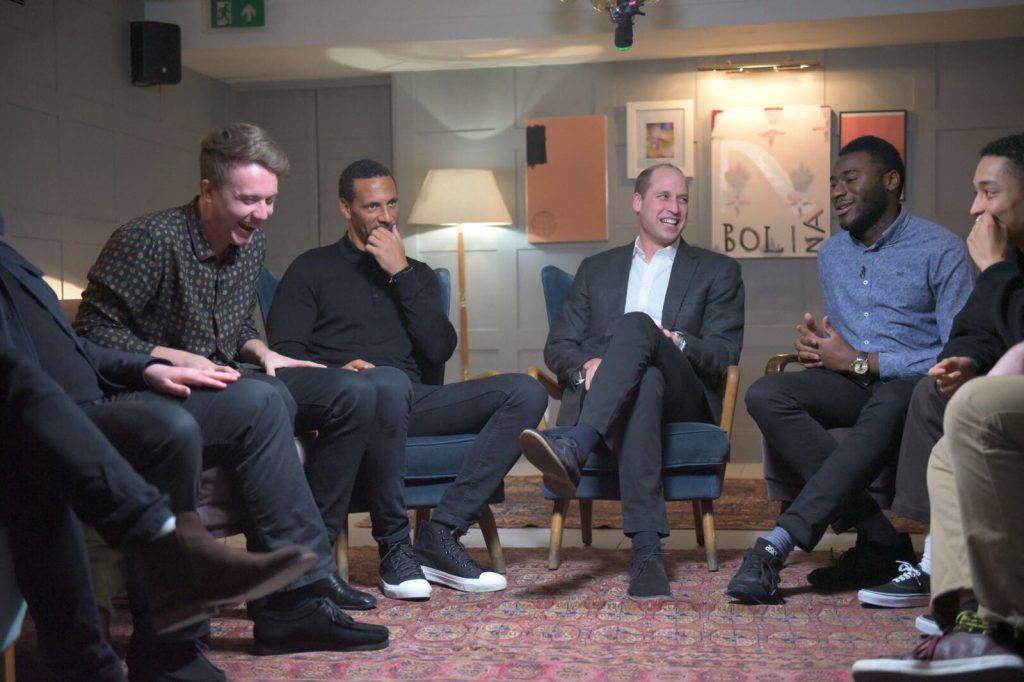The Duke and Duchess of Cambridge and Prince Harry released ten films as part of the Heads Together mental health campaign. The films feature people from all walks of life talking, often with the person that they first opened up to, about the life changing conversation that helped them cope with their mental health problems – from anxiety, alcoholism and depression through to loneliness, trauma and bereavement.
The first series for films, published on the Heads Together YouTube page and website, includes: two mums of young children; musician Stephen Manderson (Professor Green) and Cricketer Freddie Flintoff; a journalist and her friend; comedian Ruby Wax and her husband Ed; two paramedics based in Blackpool; model Adwoa Aboah with her mum; a blogger and her mum; and writer Alastair Campbell talking with his partner, Fiona. The directors who have given their time to help create and support the films include Stephen Frears, Hugh O’Connor, John Madden, John Crowley, Paul Katis, and Sam Blair.
When you realise that mental health problems affect your friends, neighbours, children and spouses, the walls of judgement and prejudice around these issues begin to fall. And we all know that you cannot resolve a mental health issue by staying silent.
Facebook, Twitter and Google have ‘got their Heads Together’ to ensure that people within their online communities will see the films and be inspired to have a conversation about their own mental health.
Alongside the film series, Heads Together published the most comprehensive survey of how people in Britain talk about their mental health carried out by YouGov. It shows that almost half of us (46%) have talked recently about mental health, with a quarter of us talking about our own mental health. Eight out of ten people who have talked about their own mental health found these conversations helpful. The findings show Britain is ‘opening up’ about its mental health but equally highlight some of the challenges that still remain. Men are less likely to talk than women and people aged 18-24 are almost twice as likely to discuss mental health than those over 65. Also, fewer than one in five people who have had a conversation have talked to their GP and fewer than one in ten spoke either to a supervisor at work or a counsellor.
The Duke and Duchess of Cambridge and Prince Harry said:
“Since we launched Heads Together last May, we have seen time and time again that shattering stigma on mental health starts with simple conversations. When you realise that mental health problems affect your friends, neighbours, children and spouses, the walls of judgement and prejudice around these issues begin to fall. And we all know that you cannot resolve a mental health issue by staying silent.
“Attitudes to mental health are at a tipping point. We hope these films show people how simple conversations can change the direction of an entire life. Please share them with your friends and families and join us in a national conversation on mental health in the weeks ahead.”
Paul Farmer, Chief Executive of Mind, which is one of the Heads Together Charity Partners, said:
“It is truly groundbreaking to see so many people, from all walks of life, sharing their mental health experiences on film in the hope of inspiring others to strike up their own conversation. These films have the power to spark life-changing and, in some cases, life-saving conversations. We hope that there will be a snowball effect with more and more people seeing the benefits of speaking out and supporting each other.”
Presenting the research at the preview CEO of YouGov, Stephan Shakespeare, said:
“The nation is at a tipping point in our willingness to talk openly about mental health, and it is young people who are taking the lead. Our research shows that while nearly half of the British public has had a conversation about mental health in the past three months, there is still a long way to go. This is especially true among groups who are less likely to speak out, such as older people and men. This study, one of the most comprehensive ever carried out on the topic, shows how important talking about mental health can be. For instance, of those that have had such conversations, more than eight in ten found it helpful. As our research – and the work of ‘Heads together’ – shows, we are at a moment of opportunity in opening up to this vital health issue.”
Return to the film landing page and find out more about how you can support the campaign



